Common Breeding Problems and How To Solve Them
Red Turquoise Discus Breeding Pair with Young
People try different “tricks” to stimulate discus breeding. Methods include using very soft water, dropping the tank temperature to 75 degrees Fahrenheit after a large water change, or feeding special foods such as whiteworms, blackworms, and earthworms. These methods have been successful in getting other cichlids to spawn.
For tank-bred discus, however, you probably won’t need to go to these extremes. If you are already maintaining a clean tank and feeding your discus a healthy, varied, and protein-rich diet, then your discus will usually be ready to breed.
WHAT ARE REMEDIES FOR COMMON BREEDING PROBLEMS?
If your fish isn’t spawning, a possible reason is that it could be infertile. A fish can be infertile for several reasons. Over-spawning, illness, medications, and nutritional deficiencies are common causes of temporary infertility. To cure these problems you just need to let your fish rest, give them time for disease treatments to work, and feed them a varied and nutritious diet. On the other hand, genetic abnormalities, internal parasites, and overuse of antibiotics can cause permanent infertility.
Another hindrance to spawning is that sometimes two female discus will team up as a pair, even if there are males in the tank. These females will act just like a heterosexual couple as they feed together, guard their territory, clean their spawning site, and actually go through the spawning motions. In this case, though, the eggs will never be fertilized, and no baby fish will be created. When these two fish are together, they may deposit their eggs at the same time or one week after the other. You will probably want to break this couple up. To do this, you will have to separate the two females and introduce them to males, hoping they will bond with the male fish instead.
If your breeding pair is fighting with each other, observe them closely. If they are only fighting a little bit, you can watch them and see if they can work out their problems on their own. However, if the fighting is too much or does not get resolved, you will need to separate them. After a few days of separation, you can try putting them together again to see if they like each other better.
These suggestions will help you to avoid common problems and have a successful breeding pair. Please keep in mind that as long as you take care of your discus properly and feed them well, they are not likely to give you any breeding problems, and you can expect success.
Red Passion Discus with Spawn
QUESTIONS
- What are different “tricks” people try to get their discus to breed?
- How can you avoid common problems when trying to get a discus breeding pair?
- What are your goals as a discus breeder?
- What does successful discus breeding mean to you?

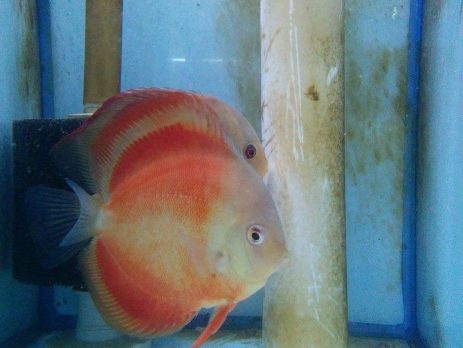
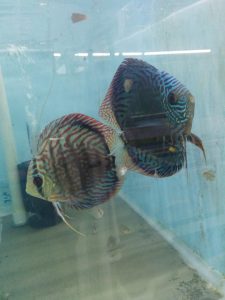
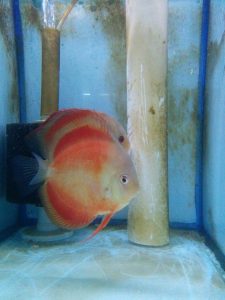
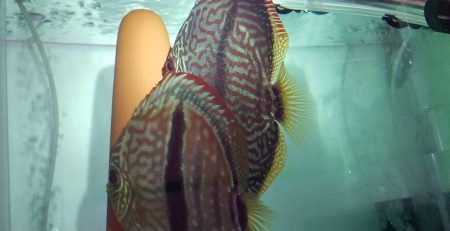


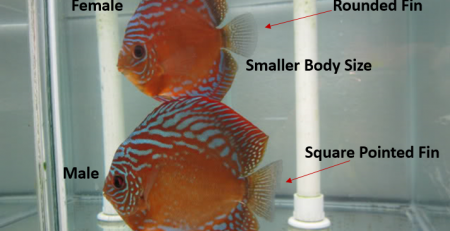
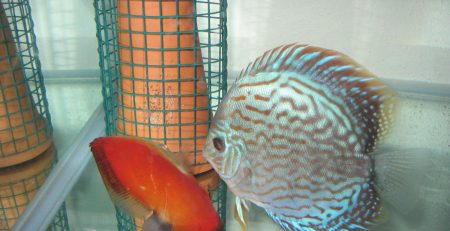
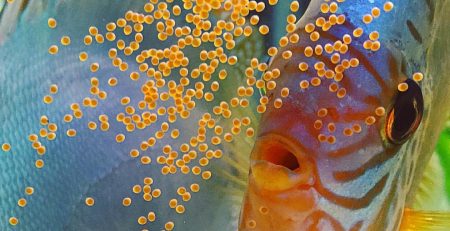
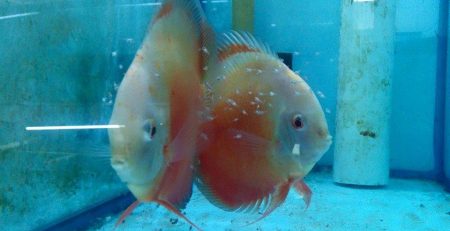
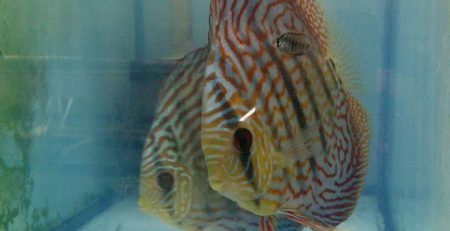
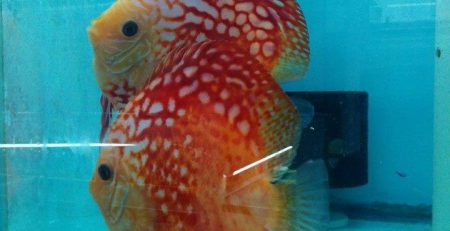
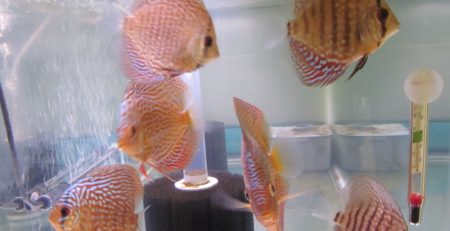
Leave a Reply
You must be logged in to post a comment.